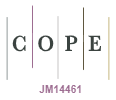Paulo Freire – the announcement of hope
DOI:
https://doi.org/10.5585/eccos.n58.14610Keywords:
liberating education, reproductive education, hope, neoconservatism, Freire's intellectual trajectoryAbstract
In this article, we discuss the intellectual work of the Brazilian patron of education. The peculiar look towards this great and multifaceted author has helped us to understand him better. What is more, his hopeful side has also contributed to a better understanding of his thoughts. This points to an encouragement and counterpoint form against the advance of neoconservative wave in Brazil. In this way, we have analyzed Paulo Freire by some perspectives such: women influence in his life, his thinking reflections, and the social contexts that helped him elaborate his scientific practice. Besides, he has been studied by the persecution bias, conservatism, and authoritarianism in Brazilian society, from the past to nowadays. Despite the advance of the ultraconservative wave, we have learned from our patron that education must not be seen as a reproductive process but as a liberating one. In this sense, it should be faced as an important social technology to promote autonomy, not oppression, and to encourage humanizing and liberating forms of social action. Freire’s work is a foreshadowing of hope.
Downloads
References
ARAÚJO FREIRE, A. M. (2005) Paulo Freire: uma história de vida. Indaiatuba – SP: Villa das Letras.
BARRETO, V. (1998) Paulo Freire para Educadores. São Paulo: Arte & Ciência.
BEISIGEL, C. (1984) Ensino Público e Educação Popular. In: Paiva, V. (org.) Perspectivas e dilemas da educação popular. Rio de Janeiro: Ed. Graal.
BOURDIEU, P. & PASERRON, J. C. (1982) A Reprodução: elementos para uma teoria do sistema de ensino. Rio de Janeiro: Francisco Alves.
BRANDÃO, C. (1981) Pesquisa Participante. São Paulo: Ed. Brasiliense.
CAPRA, F. (1982) O Ponto de Mutação. São Paulo: Cutrix.
FAGUNDES, R. & BARBOSA, W. (2019) Por que o sistema educacional brasileiro nunca adotou Paulo Freire na prática? Le Monde Diplomatique – Brasil, nº 138, jan.
FRAGA, G. (2010) “A Nicarágua sandinista: guerrilha e educação” Revista História: Debates e Tendências – v. 10, n. 1, jan./jun. (p. 189-203).
FREIRE, P. (1979) Conscientização. Teoria e prática da libertação: uma introdução ao pensamento de Paulo Freire. São Paulo: Cortez & Moraes.
FREIRE, P. (2013) Pedagogia do Oprimido. 54ª ed. rev. e atua. Rio de Janeiro: Paz e Terra.
FREIRE, P. (2003) Cartas à Cristina: reflexões sobre a minha vida e a minha práxis. ARAÚJO FREIRE, A. M. (org.) São Paulo: Editora Unesp.
GEERTZ, C. (1989) A Interpretação das Culturas. Rio de Janeiro: LTC.
GUERRA, M. (2013) Sobre as 40 horas de Angicos. Em Aberto. vol. 26, nº90, pág. 21-44. jul/dez.
SOUZA, Ana I. (2012) Pensando com Paulo Freire. Guararema – SP: Escola Nacional Florestan Fernandes.
WILLIAMS, R. (1986) The uses of Cultural Theory. In: New Left Review. nº158.
WHITAKER, D. C. A. (2000) Brasilien, Land der Zukunft? Die Projektionen Stefan Zweigs und Paulo Freire: der Kontrapunkt der Hoffnung. In: CHIAPPINI, L. & ZILLY, B. (Hrsg.) Brasilien, Land der Vergangenheit? Frankfurt am Main: TFM.
WHITAKER, D. C. A. (1984) Ideologia e práticas culturais: o controle ideológico dos trabalhadores da cana. São Paulo, USP, FFLCH.
Downloads
Published
How to Cite
Issue
Section
License
Copyright (c) 2021 EccoS- Revista Científica

This work is licensed under a Creative Commons Attribution-NonCommercial-ShareAlike 4.0 International License.
- Abstract 507
- PDF (Português (Brasil)) 590






